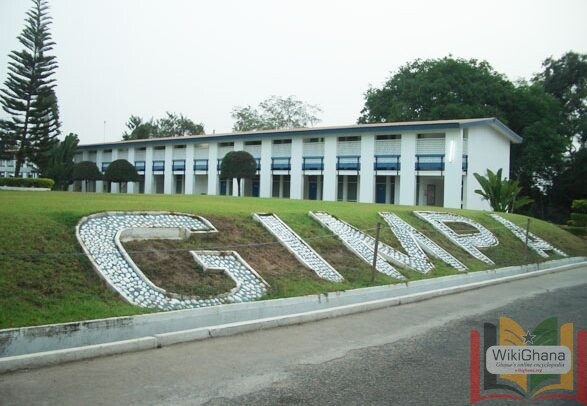The Ghana Institute of Management and Public Administration (GIMPA) is pushing for the Ghana Education Trust Fund (GETFund) to support them in infrastructure development.
The agenda is being pushed by the Governing Council of the school.
At a meeting with President Akufo-Addo on Wednesday at the Jubilee House, Chairman of the Council, Kofi Asante made the passionate appeal to enable the Institute to build residential, lecture, and library facilities on campus.
He was there to introduce the new Rector of the School, Professor Samuel Bonsu officially to the President.
GIMPA, he said “has been and still is a self-financing public university” but on the issue of hostel facilities and other infrastructure needs, they urgently needed the support of the state since they meet not only their capital outlays, but also administrative cost.
For the past 60years, he said some effort has been made to expand the school’s facilities, however the school currently has no library to boast of and there is no single hostel on campus, effectively rendering GIMPA a day school.
“I have taken the liberty over the past three, four, years to be talking quietly to GETFund authorities and the thinking is that if the President were minded to designate construction of infrastructure project as a GETFund special assistance to us, then maybe, within 24 months, we can have some of these things” Chairman of the Council noted.
He has therefore made an appeal for a special consideration to be given to GIMPA in terms of infrastructure.
In congratulating the new Rector, President Akufo-Addo indicated the request by the Council will be given the necessary consideration by his administration to decide the support that can be extended to GIMPA.
“To the extent that for a long time you have been self-sufficient and not a burden on the public exchequer, it comes with its own complications. But definitely, the work you are doing is extremely important for the public service and the nation, so we are required to give a very serious consideration”.
For that matter, he said “the finance Minister will be informed about this request and then we will engage to see what extent that the meeting of minds will be about providing the support that you are seeking.”
GIMPA
The Ghana Institute of Management and Public Administration (GIMPA) was established in 1961 as a joint Ghana Government/United Nations (UN) special fund project.
Originally named the Institute of Public Administration, it was set up as one of the key strategic institutions to develop the public administrative system, to provide civil servants with administrative and professional competence, and to plan and administer national, regional and local services.
In 1966, the joint sponsorship ended and the UN formally handed over the Institute to the Government of Ghana.
In 1969, the Institute was then re-designated as the Ghana Institute of Management and Public Administration to reflect its expanded functions.
For more than 50 years, GIMPA’s activities have been guided by five successive mandates, beginning with the first legislative instrument of 1961 to the current GIMPA Act, 2004 (Act 676).
Each mandate affirmed the status of the Institute as the national management development institute to provide for the study of public administration and management of Ghana.
By its latest mandate, GIMPA now offers courses in its areas of competence leading to the award of certificates, diplomas and degrees up to the doctoral level.
The areas of competence are defined to include training and education in leadership, management, public administration and technology.
Today, GIMPA has transformed itself into the leading management development institute and is an independent public tertiary institution with financial and operational autonomy.
GIMPA’s mission is to maintain a Centre of Excellence for training in public and business administration, by continuously enhancing the capability of middle and top level executives in public and private sectors as well as non-governmental organizations (NGOs) both in Ghana and internationally, to manage their institutions and enterprises efficiently and effectively.
The Institute is accredited by the National Accreditation Board.
By Charles Takyi-Boadu, Presidential Correspondent


